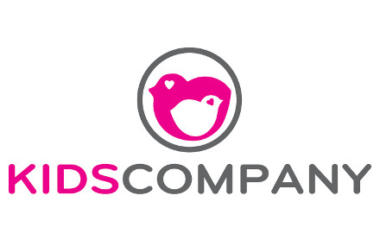Six years after the Kids Company charity went into administration, the High Court issued its decision in February 2021 in response to the claim brought by the Official Receiver (OR) against its trustees and chief executive. Few cases involving a charity have been as widely reported on not only by the charity sector press, but also the wider media, with Kids Company connected to high-profile figures and organisations in the media and politics.
The 225-page judgment found that the trustees were “highly impressive and dedicated” and strongly criticised the OR, in particular its understanding of how charities are structured. The OR had sought disqualification orders against the trustees and chief executive, the latter for acting as a de facto director, which would have prevented them from acting as company directors. The court found this would be unmerited and ruled that the trustees were not guilty of running an unsustainable business and were not unfit to be involved in running a charity.
Mrs Justice Sarah Falk also ruled that the charity’s founder and chief executive, Camila Batmanghelidjh, was not a de facto director. It is important to note that at no point were allegations made of dishonesty or wrongdoing or breach of duty.
Background to the case
Batmanghelidjh set up Kids Company in 1996 as a charity dedicated to helping vulnerable children. Initially based only in London, it expanded its operations to Bristol and raised millions of pounds from various sources, including government grants and donations from large companies and celebrities, while winning plaudits and awards for its work.
Established as a charitable company limited by guarantee, its trustees, who were volunteers, were therefore both trustees for the purposes of charity law and company directors under charity law. As a company, it was also subject to the corporate insolvency regime.
Kids Company collapsed in 2015 following a police investigation into physical and sexual abuse was later dropped but led to the withdrawal of a number of offers of financial support. It was also subject to an investigation by the Public Administration and Constitutional Affairs Committee in late 2015 and early 2106 which found that there had been a “extraordinary catalogue of failures” by the trustees, ministers and the Charity Commission. This led the government to commit to greater scrutiny before awarding grants to charities.
Additionally, the Charity Commission launched a statutory inquiry in 2015 that is yet to report as the investigation of the Official Receiver took precedence. The Commission has already confirmed that it will not take regulatory action against the trustees.
Reaction to the judgment
Although the Charity Commission’s report remains outstanding, the judgment was hailed as a victory for the charity sector. The court emphasised the public benefit of voluntary trusteeships and made clear that the court should rule in favour of trustees making honest and reasonable decisions in challenging circumstances. This allowed the charity sector to breathe a sigh of relief. If the trustees had been disqualified for operating an unsustainable business model, this may well have deterred individuals from accepting trusteeships.
The judgment therefore provides reassurance to trustees that they will be protected by the law provided they comply with their statutory duties, act honestly and in good faith. This provides a high bar for trustee conduct to demonstrate unfitness going forward. Furthermore, the judgment should encourage trustees, charity founders and those in leadership roles to examine the division between those in an oversight role and those running the charity on a day-to-day basis. This should encourage charities to consider how authority is delegated, how decisions are taken and documented, and facilitate open dialogue and reflection upon behavioural and leadership styles.
Despite this, it remains possible that the case will have a negative impact on the charity sector in the long term with the publicity around it deterring people from joining trustee boards, or boards to become very cautious in response to Falk’s judgment. It is also too soon to tell whether the case will remain in the public’s mind over the longer term and possibly reinforce the perception that donors do not get value for their money.
Issues raised in the judgment
The judgment criticised the OR’s lack of understanding of the charity model, particularly the concept of non-executive boards and charity finances. Kids Company operated on a demand-led basis, providing help to all those requesting it. This is not uncommon, of course, in the charity sector and Falk criticised the OR for not fully comprehending that charities might not necessarily operate with large reserves and many depend almost exclusively on donations.
Falk’s view was that the Charity Commission, as regulator of the sector, should be the body that deals with matters of this kind through the statutory powers it holds and the standards it sets for the sector. Charity trustees should therefore ensure they always familiarise themselves with the extensive guidance the Commission has published on trustee duties and responsibilities.
A further area of consideration was whether Kids Company could have survived if the trustees had acted differently. Falk concluded it could not have. The charity was severely impacted by the police investigation into allegations of sexual abuse. This investigation took longer than three months and Falk therefore concluded that if Kids Company had built up three months’ reserves, it still would not have been able to cover its costs.
Due to restricted funding and the imperative to spend restricted funds on their charitable purposes, many charities do struggle to build up reserves. However, Falk’s findings have provoked considerable consternation in the charity sector, as Kids Company was a large charity with plenty of unrestricted funding. For smaller and medium size charities already living precariously before the Covid-19 pandemic, it is not clear why the Kids Company was not expected to have reserves covering a longer period of time. The fact that it did not have more reserves built up meant that beneficiaries effectively lost vital support and access to services overnight.
Furthermore, the judge concluded that the OR was incorrect to make a direct comparison with the business model of a purely commercial company. Her view was that it was not possible to say that Kids Company might not have survived, if the (unfounded) allegation of sexual misconduct had not been made. Linked to this, was the court’s confirmation that trustees of charitable companies are subject to the same duties as directors of other types of companies. However, the charitable context should be disregarded.
As such, the judgment states that the conduct leading to a finding of unfitness in a commercial company director does not automatically lead to the same conclusion in a charitable company and therefore potentially provides charity trustees with a greater degree of protection, provided they make honest judgments that a reasonable person would have made and act in what they consider the best interests of the charity.
Further implications and what happens next
The judgment notes that the charity sector depends on the voluntary commitment of individuals taking on trusteeships and that the threat of disqualification proceedings might negatively impact trustee recruitment. Charity trustees should therefore take some comfort from Falk’s judgment. Similar claims being brought against trustees, particularly by the OR, now appear far less likely.
Charity trustees have fiduciary duties that sit alongside a wide discretion in determining how to advance their purposes in an increasingly regulated sector. This case suggests that the skills and experience of a trustee, as well as their conduct, will be considered by the court in the event of an allegation. Falk also examined the individual role and contribution of each individual trustee, rather than judging the trustee board as a collective.
The judge was ultimately complimentary about the Kids Company’s trustees and how they had stuck with the organisation through such a difficult period and persevered with the legal case at potentially huge personal costs. Voluntary trusteeships remain resolutely in the public good following this judgment. The OR has stated that it will not seek to appeal the judgment and the case is therefore closed. It is expected the Charity Commission will issue its findings in the near future, which the sector awaits with interest, despite the Commission’s decision not to take regulatory action against the trustees.
Fiona Wharton is a partner and Daniel Lewis a solicitor at Wrigleys Solictors
Charity Finance wishes to thank Wrigleys Solicitors for its support with this article










